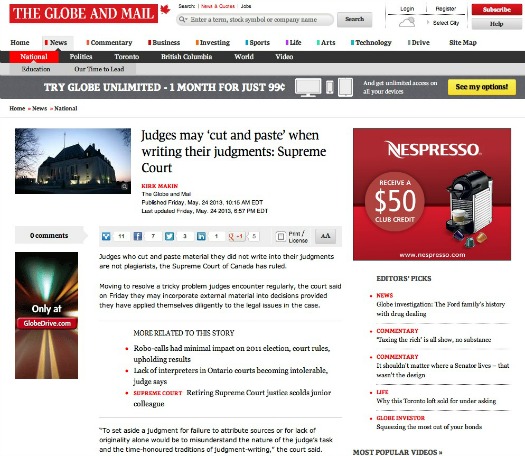
WT is pleased to announce that Canada’s highest Court, the Supreme Court of Canada, issued reasons this morning in the case of Cojocaru v BC Women’s Hospital et al. Dan Shugarman, Paul McGivern and Ann Howell were successful in overturning the British Columbia Court of Appeal. The issue that dragged this case all the way to Canada’s highest Court is whether the acceptance of the submissions of counsel by a trial judge (ie. cutting and pasting) is an error of law which displaces the presumption of judicial integrity such that a new trial is required. In this case, the answer was “no”.
Intervenors included the Canadian Bar Association, the Trial Lawyers Association and the Ontario Government, and the decision will have national implications. The SCC was asked to address one of the cornerstones of our judicial system; the integrity of our judges. Specifically, when and in what circumstances has a judge been seen to have discharged the duty to act impartially and with integrity.
Our legal team argued that the real question is whether reasons for judgment contain palpable and overriding errors which provide the “cogent evidence” required by law to displace the presumption of judicial integrity – not simply that the adoption of counsel’s submissions in and of itself is sufficient to displace this presumption. The SCC concurred.
The presumption of judicial integrity can only be displaced by “cogent evidence”. This is a long established principle in Canadian law and one that is fundamental to the adversarial system which is a cornerstone of our legal culture. Without “judicial integrity”, just as without “innocent until proven guilty”, our system crumbles and the very concept of “justice” is nullified.




